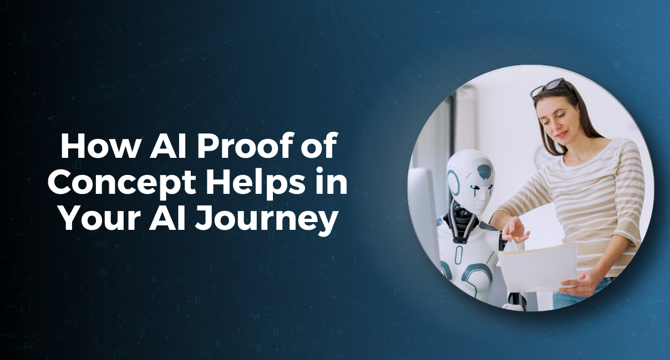Beyondkey
3w
309

Image Credit: Beyondkey
How AI Proof of Concept Helps in Your AI Journey
- IBM's Watson, introduced in mid-2010, failed to revolutionize medicine due to data issues and missed analysis, highlighting the need for testing AI through proof of concepts.
- AI proof of concept is crucial for businesses to reduce risks and maximize AI benefits, especially in areas like data quality, talent acquisition, profitability assessment, ethics, integration, and goal alignment.
- AI proof of concept goes beyond technology, focusing on aligning AI with business goals, building trust, demonstrating value, and understanding what works and what doesn't.
- AI enhances accuracy, assesses performance, and facilitates real-time monitoring by automating data analysis, providing fair performance metrics, predicting future outcomes, and offering quick feedback.
- AI helps in decision-making by simulating scenarios, optimizing processes, finding optimal solutions, and accelerating learning, thereby reducing the need for trial-and-error approaches.
- AI mitigates different risks in areas like finance, operations, compliance, security, and reputation by detecting fraud, predicting issues, ensuring rule compliance, enhancing cybersecurity, and preserving brand image.
- A successful AI proof of concept is data-driven, involving setting clear goals, collecting relevant data, cleaning and analyzing data, and validating results accurately before scaling up AI initiatives.
- To make AI sustainable, businesses must invest in infrastructure, build expert teams, establish usage guidelines, continuously enhance AI solutions, and stay informed about evolving AI trends.
- AI proof of concept addresses initial concerns like data quality, talent scarcity, profitability uncertainty, ethics, integration challenges, and vague objectives by offering solutions tailored to each issue.
- Success stories in retail, finance, healthcare, and manufacturing demonstrate how AI proof of concept drives significant improvements in areas like sales, fraud detection, patient care, and operational efficiency.
Read Full Article
18 Likes
For uninterrupted reading, download the app